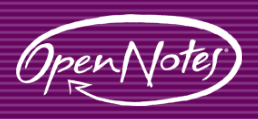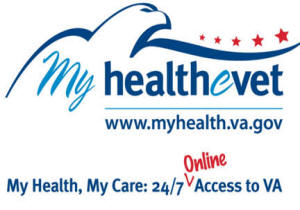Important update: I just learned that the full text of these articles is open access! Thanks to the Annals for giving patients access to the text – since it is, after all, about patients see the information.
- OpenNotes article: “Inviting Patients to Read Their Doctors’ Notes: Patients and Doctors Look Ahead” (Walker et al) – text, PDF
- MyHealtheVet article: “Patient Interest in Sharing Personal Health Record Information: A Web-Based Survey” – PDF
- Editorial: “Access to the Medical Record for Patients and Involved Providers: Transparency Through Electronic Tools” – PDF
 We’ve written several times about the OpenNotes study, in which patients are given access to their physicians’ visit notes. Will the world come to an end? Will patients deluge their doctors with scared and confused questions? e-Patients think not, but such concerns have been cited as justification for keeping the records hidden.
We’ve written several times about the OpenNotes study, in which patients are given access to their physicians’ visit notes. Will the world come to an end? Will patients deluge their doctors with scared and confused questions? e-Patients think not, but such concerns have been cited as justification for keeping the records hidden.
The solution to rumors is data.
We’ve reached the end of this year-long study, funded by Robert Wood Johnson’s Pioneer Portfolio. The number-crunching has begun, and today we’re seeing the first published results: the baseline measurements of expectations and attitudes, before the access began.
At 5 pm ET today the Annals of Internal Medicine released
- an article about the OpenNotes baseline data
- a related article about data sharing by users (patients) of the Veterans Affairs (VA) PHR system, My HealtheVet. (SPM board member Sue Woods is an author on the VA paper.)
- an editorial about the entire issue of
As we said in November about OpenNotes, (emphasis added)
We are learning that patients are overwhelmingly interested in gaining rapid access to their notes and that many doctors appreciate the potential for open records to improve care. … The enthusiasm of patients appears to cut across all lines of age, health status and education. And while many doctors turned down our invitation to join the one-year project, citing fears that their notes would adversely affect their already onerous work flow and frighten or confuse patients, only one doctor who signed up for the study later dropped out, and that was for personal reasons. … Moreover, hallway conversations indicate that doctors have not experienced significant disruptions to their work…
I hope to post more information on these “before” numbers. In the spring we’ll see the “after” numbers – what actually happened during the year of the study.







Just received an email notification of a University of Washington press release about the study:
http://www.washington.edu/news/articles/doctors-cautious-patients-enthusiastic-about-sharing-medical-notes
I haven’t read the study yet – and am glad its available for free (!) – but one of the most interesting aspects to the UW report on it is the discrepancies among participating study sites about openness of doctors to the idea of openness:
I have read this article in faculty of medicine forum , http://www.facmedicine.com